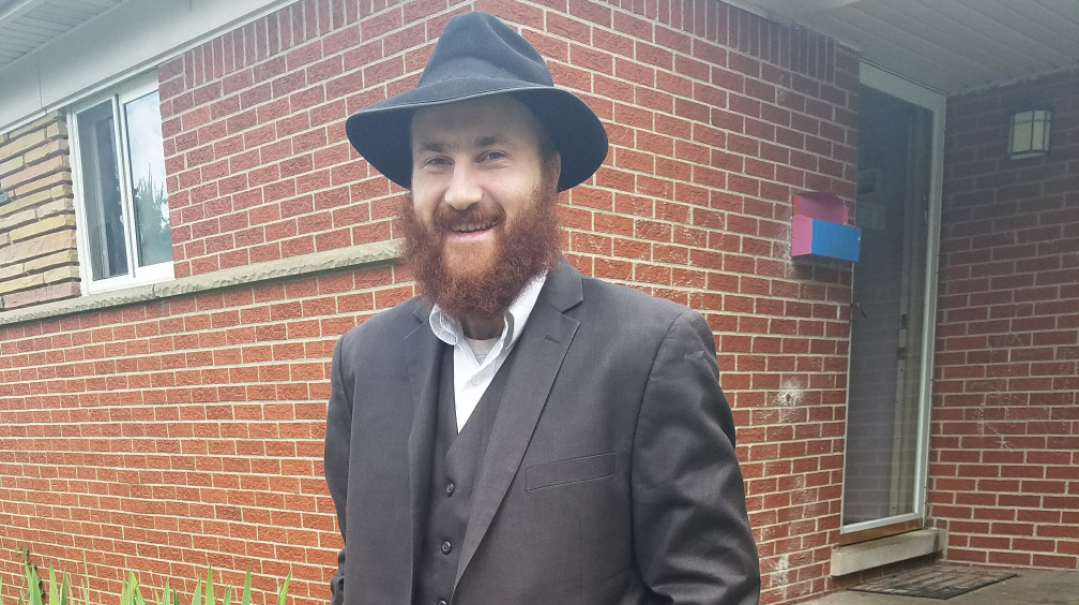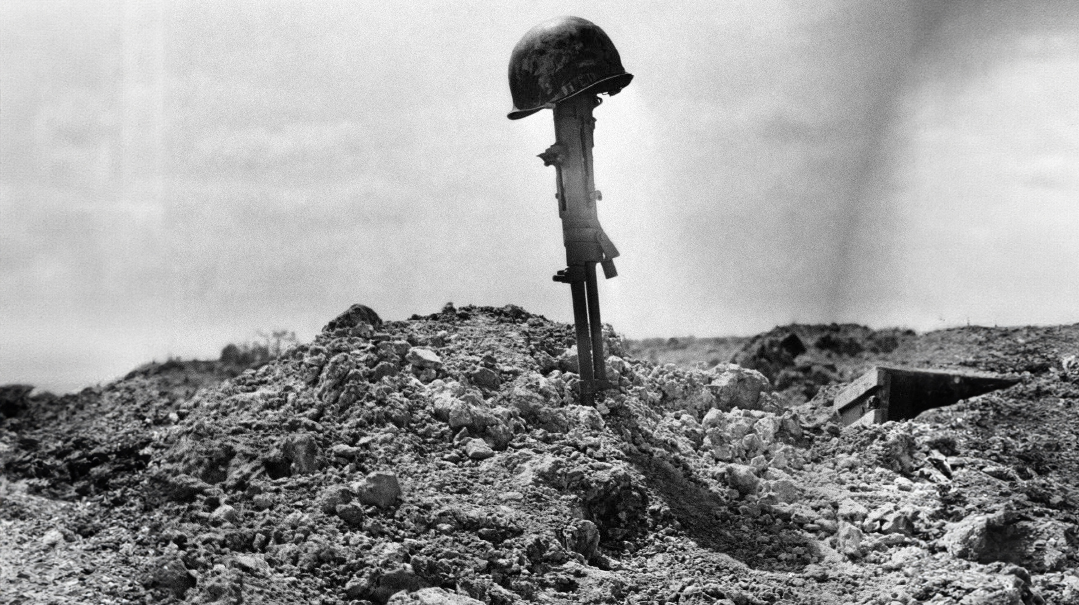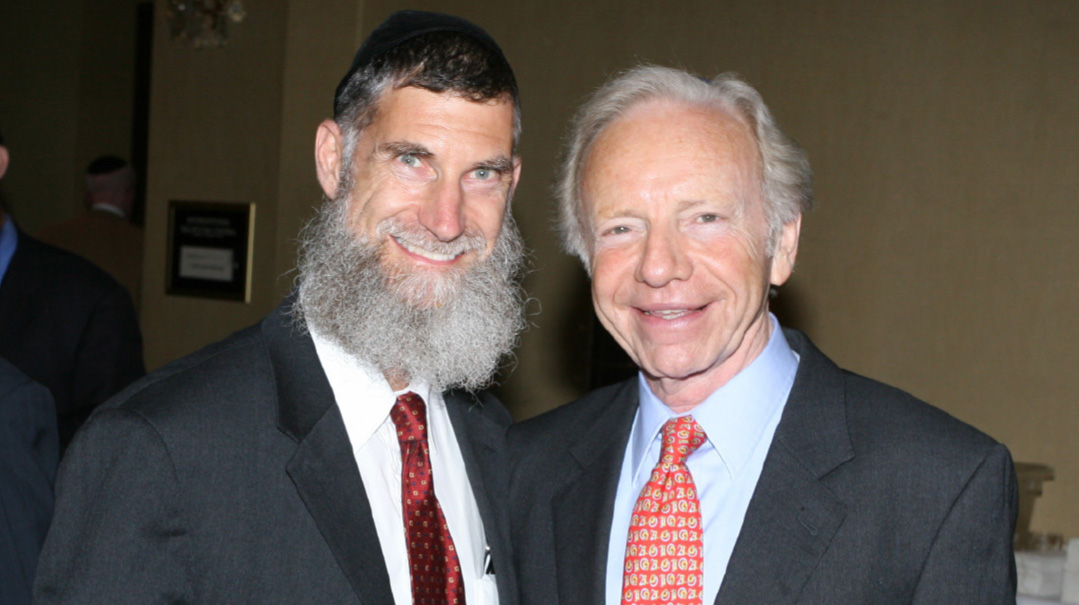Two Blue Checks
| November 2, 2021I felt love for my family, and I was always aware that they loved me. The words, however, were never spoken

I can’t remember being told as a child that I was loved, nor can I recall ever expressing in words that I loved my parents or siblings. Don’t get me wrong; I felt love for my family, and I was always aware that they loved me. The words, however, were never spoken.
To this day, I don’t know why. Perhaps neither of my parents were taught to verbally share their feelings. Regardless, there was always a feeling of love in my house, and I certainly never felt lacking in not being specifically told — in fact, this was normal to us.
My first adjustment came about soon before I married. Certainly, it felt normal to say those “three little words” to the woman with whom I would share the rest of my life. And so I did. Several times a day. But my safety zone ended there. I was never comfortable saying those words to anyone else. Even as my children were born, grew, and matured into adults, conversations always ended with “goodbye,” and nothing more.
It was not until my father fell ill that my attitude began to change, and my vocabulary grew. Aware of his own mortality and growing more appreciative of his daily blessings, my father surprised me once when I visited him in a rehabilitation facility after a close call with death. As I bid him goodbye, he said it. The words flowed out as naturally as if he had said them to me every day for the previous 47 years — although I am certain it was the very first time. And I responded in kind. Although I recognized that this was a new dialogue for us both, I don’t think I showed an outward reaction to it. If I did, my father showed no response to my reaction. But, then again, why would I react? The absence of the healthy expression of love, albeit for all of my life, did not detract from the fact that it was normal to be shared, not the opposite.
And so began a new normal. Most conversations with my father from then on ended with “I love you.” When he passed in June of 2016, I was consoled by having had this chance to enhance our relationship.
I started to notice changes in my attitude toward communication with others.
I told my kids I loved them.
I even said it to close friends occasionally, when warranted and appropriate.
Yet, for reasons I’m still unaware of, this exchange of a simple sentiment, crucial to so many, never took place between me and the person who actually gave me life — my mother.
This was in no way an indication that Mom did not show love. Anyone who has ever had the good fortune to know her knows that everything she did was driven by her love for others. If love is giving, then she loved the world, even those she didn’t know. Mom showed it with her deeds and with her actions — but she did not show it with words.
A fundamental rule of therapy is to acknowledge what is said by others. With the evolution of social media applications, we have reached the point where not only can we send a message to anyone anywhere in the world, but we can get instant visual confirmation that our message was read.
As with most advancements, however, there is a downside. When a message is read but not responded to, the sender may feel ignored. My younger brother recently shared one such experience with me. A client sent a request via WhatsApp, asking for a quick reply. While my brother was researching the topic to provide an answer, the sender apparently lost his patience, shooting off a second text, in bold type and all caps, “TWO BLUE CHECKS!?!?”
This was a clear reference that both checks were blue, indicating his first message had been viewed, and conveying his disapproval of having to wait for a reply. Needless to say, my brother was not pleased with this aggressive attitude.
I am no stranger to breakdowns in communication. The fairytale romance that was once my marriage slowly became a horror story. Having no choice, I left my wife, my home, my job, my family and friends, and all of the comforts I had built over decades, and set off for a fresh start in Israel.
My oldest son was 29 and single and kind enough to host me in his Jerusalem apartment while I was getting settled in my new life. Baruch Hashem, he met his bashert soon thereafter, but Covid struck just days before the planned wedding. Like most of the world, we scrambled to put together a “corona wedding” in an empty backyard for just 20 people, and I was fortunate to find an apartment left vacated by a family grounded in America. I planned to stay a week or two, but as the pandemic worsened, I began preparing for Pesach.
While all this was going on, Mom was checking in regularly. When she questioned how I would make Pesach in a strange apartment in a total lockdown, I sent her photos of my best attempt to work with what I had. These exchanges were invaluable to me as Mom underwent a heart procedure shortly before Pesach — her disease was spreading and her condition had worsened rapidly — requiring her to recuperate in a rehab center through Yom Tov.
This was a very scary time for anyone in a healthcare facility, let alone a patient with as many pressing issues as Mom. The options were limited (there were none), so my siblings and I chose not to think about what could go wrong, and we just prayed there would be no complications.
With Hashem’s blessings, Mom’s stay was relatively uneventful, and she was discharged. Sadly, she returned to the hospital just days later. There was widespread damage to her system, and she was deteriorating rapidly.
As the days went by, communication was challenging. She was not always coherent. One Friday I called to wish a good Shabbos, but it was difficult to understand what she was saying, and the connection ended abruptly. I quickly sent a “Good Shabbos” WhatsApp message, and, without thinking — as if it were the most natural thing in the world — I added, “I love you!”
I felt elated to be able to say that to my mother, and I hoped she would see it. I checked my phone after Shabbos to see if the message had been read, but the checks weren’t blue. I understood there was a lot going on, and I was patient, but I checked regularly. It had taken me so long to share, I hoped it would be received quickly.
Sadly, Mom’s condition went from bad to worse, and soon she could no longer answer the phone. The hospital prohibited visitors, so the nursing staff updated us and relayed messages. I found myself checking my phone less, resigned to the possibility that my text would never be read. As Mom’s condition worsened, I stopped checking. I accepted the reality that while she might never read my message, it wasn’t necessary; Mom had known what I finally said all along.
The next several weeks were a whirlwind of activity. As the pandemic worsened and the lockdown in Israel tightened, my mother’s health continued to decline. My siblings and I braced for the inevitable more than once, a replay of our experiences with our father just four years prior. Every Friday was faced with trepidation, not knowing what news would come after Shabbos. I was barely sleeping, staying up into the early Sunday morning hours, as I was seven hours ahead of New York, eager for an update.
Mom held on despite medical prognosis, but the call came about three a.m. on a Sunday morning. Mom was gone. The waiting finally over, there was nothing left for me to do — but wait some more. Covid regulations and scheduling issues meant we wouldn’t be able to return to the cemetery for the burial until Tuesday. There was nothing for me to do: no plans to be made, no work to be done, nothing to keep my mind off of my loss. At 52, I felt orphaned, alone and unsure. I don’t know why, but I decided to check the WhatsApp conversation with my mother that had been dormant for almost a month.
I thought my tears had affected my vision. The checks were blue! At some point, my mother had read what I wrote to her. Although she’d apparently been unable to reply at that point, I took great comfort in knowing that she saw it, and I hope it gave her some strength. Strange how it took something blue to make me not so blue anymore.
Many of us don’t get the chance to do all the things in life we wish we could, and it is important to truly appreciate the blessings we are given.
I am blessed to have been given the opportunity to finally tell my mother how I felt about her.
I am doubly blessed to know the message was received.
L’iluy nishmas Zelda Rivka bas Baruch, 29 Iyar 5780
Yehoshua Ben Naftali is a father of eight and grandfather of five.
(Originally featured in Mishpacha, Issue 884)
Oops! We could not locate your form.







